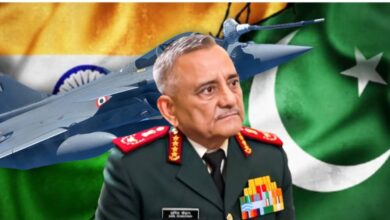Intervention of Superpowers in Weak and Impoverished Nations

# By Muna Chand
Poverty, in its true sense, is not merely an economic predicament; it is also a manifestation of weak national structures, dysfunctional governance, and inept leadership. When a nation is internally unstable, economically dependent, and governed by visionless leaders, external powers readily exploit it for their own strategic interests. The current situation in Bangladesh is not an anomaly—Nepal, too, has long been a victim of such interventions.
Nepal’s Historical Struggle Against Foreign Intervention
Looking back at Nepal’s history, King Prithvi Narayan Shah unified the nation through sheer military prowess, diplomacy, and strategic foresight. Successive leaders like Bahadur Shah, Amar Singh Thapa, Bhimsen Thapa, and Bir Balabhadra Kunwar defended Nepal’s sovereignty at great personal cost. Even Prime Minister Jung Bahadur Rana and King Mahendra, despite their shortcomings, sought to shield Nepal from becoming a mere pawn in the global power struggle.
However, the present scenario is starkly different. Today’s political elite prioritize personal gains over national interests, readily aligning with foreign powers to secure their own positions in governance. This has resulted in Nepal losing its strategic autonomy and turning into a geopolitical testing ground for global superpowers.
Foreign Interference in Nepal
Nepal has suffered the internvation of external powers most.Throughout history, colonial and post-colonial powers have sought to manipulate Nepal’s political landscape to serve their geopolitical ambitions.
The British Era: The Anglo-Nepal War of 1814–1816 resulted in Nepal losing vast territories. British colonial rulers deepened internal divisions, fostering factionalism between nationalist and pro-British groups.
The Rana Regime: Jung Bahadur Rana established strong ties with the British to maintain Nepal’s autonomy, but at the cost of Nepalese manpower being deployed in British military campaigns.
King Mahendra’s Nationalism: He implemented the Panchayat system to curb foreign influence and strategically engaged China to counterbalance India’s dominance.
Post-Democracy Instability: Since 1990, Nepal has faced increasing political instability. The situation worsened after 2006, as Nepal’s leadership began operating under the direct influence of foreign powers.
The Current Situation in Bangladesh
Bangladesh is now ensnared in a similar geopolitical web. Recent developments indicate that superpowers are actively intervening under various pretexts to consolidate their influence.
Political unrest and movements have escalated.
External forces are clandestinely involved in regime change efforts.
The military, bureaucracy, and economy of Bangladesh are increasingly subjected to foreign influence.
What Nepal has endured for decades is now unfolding in Bangladesh. Weak governance, rampant corruption, and ineffective leadership render these nations vulnerable to external manipulation.
Conclusion
Superpowers do not need to exert significant effort to instigate political changes in impoverished nations. A combination of weak leadership, dysfunctional state mechanisms, and economic dependency provides them with the leverage to exert control. Both Nepal and Bangladesh are navigating a perilous trajectory, dictated by global power struggles. The only viable path forward lies in learning from history and fostering self-reliance. However, given the current trends, it seems both nations are bound to remain ensnared in the grand chessboard of global geopolitics.







